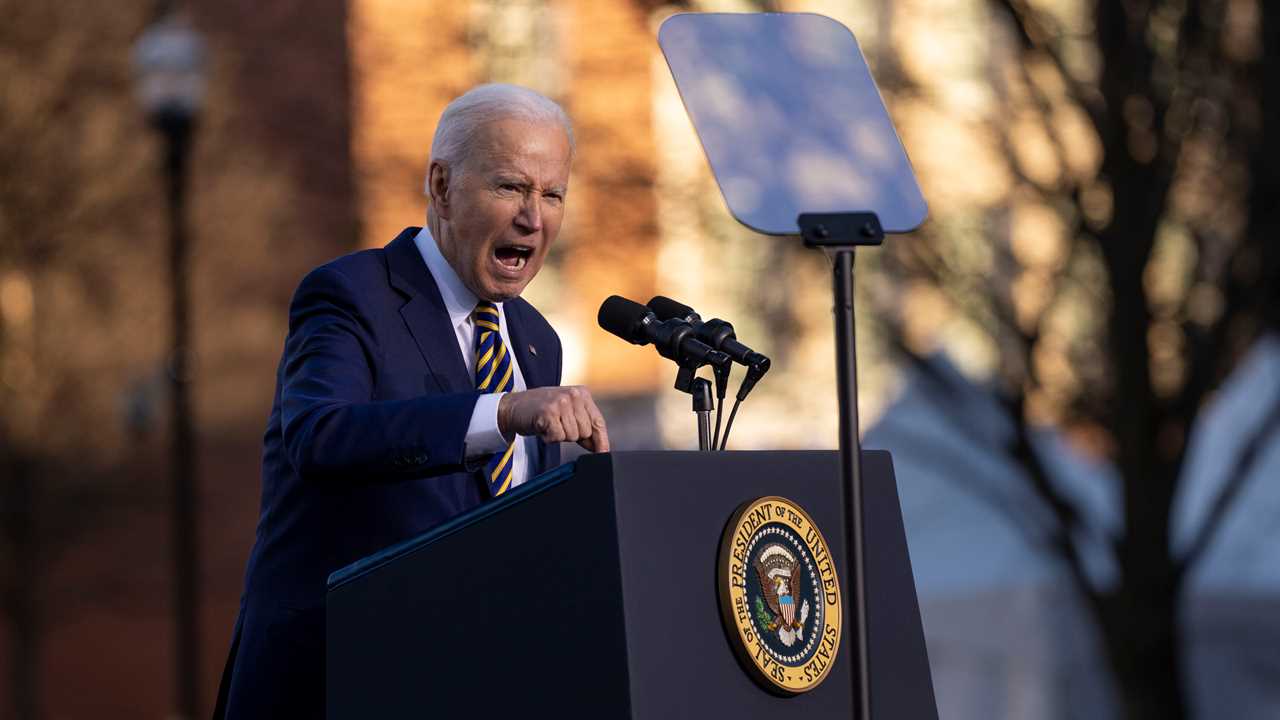
In the nine months since Republicans in Georgia muscled through a host of new voting restrictions, 18 other states have enacted 33 such laws. More than 30 states have concluded their redistricting processes, with extreme partisan gerrymandering locking in Republican control over legislatures in the electoral battlegrounds of Georgia, North Carolina, Ohio and Texas for another 10 years.On Tuesday, President Biden urged Democrats to change the Senate’s rules to open a path — now blocked by the threat of a Republican filibuster — for federal legislation that would roll back some of the more egregious new voting restrictions and rein in hyperpartisan gerrymandering.Calm persuasion, Mr. Biden said, is no longer an option for a voting law that Democrats have now been debating among themselves for nearly a year.“I’ve been having these quiet conversations with members of Congress for the last two months,” the president said in Atlanta on Tuesday. “I’m tired of being quiet!”To that end, Mr. Biden called for ending the 60-vote threshold for voting rights bills, a step he opposed taking during his campaign and resisted throughout most of the first year of his presidency.While Mr. Biden waited, however, the laws governing voting were changed in many states, and a degree of voter suppression may have become all but assured.Confusion over changing voting laws, access, locations and timetables could cause some citizens to miss their opportunities to vote, experts say. Harsher penalties for voters and for election officials could deter people from voting for fear of prosecution over an honest mistake.And newly enacted district maps that significantly benefit one party — like those in Texas and Ohio, where Republican lawmakers have nearly ensured themselves legislative majorities for a decade, no matter which party wins statewide contests — could also discourage citizens from voting.“Damage has been done, and it’s not quite clear how much of that damage we’ll be able to undo,” said Cliff Albright, co-founder of Black Voters Matter, a voting rights group. He said his organization had heard from Georgia voters who struggled with the state’s new rules during municipal elections there last year.The two bills that Democrats are focused on — the Freedom to Vote Act and the John Lewis Voting Rights Advancement Act — would turn back some of the more onerous restrictions passed by state legislatures in 2021 by setting minimum requirements for early voting and for what forms of identification are accepted at polling places, and by easing the voter registration process.The Freedom to Vote Act would also make partisan gerrymandering illegal, giving the Department of Justice and outside groups more legal tools with which to challenge politically lopsided maps.Notably, the bills would expand voting access in overwhelmingly Democratic states, such as New York and Delaware, which have very limited early-voting provisions, and would help rein in Democratic gerrymanders in states like Illinois and Maryland.ImageDemocrats are focused on two bills — the Freedom to Vote Act and the John Lewis Voting Rights Advancement Act — which would turn back some of the more onerous restrictions passed by state legislatures in 2021.Credit...Nicole Craine for The New York TimesBut with primary season for the midterm elections beginning on March 1 in Texas, the window for passing any federal voting legislation is shrinking — heightening the frustrations of activists who looked to the White House for action, or at least for more muscular statements of support and urgency, throughout 2021.“Unless President Biden applies the same level of urgency around voting rights as he did for BBB and infrastructure, America may soon be unrecognizable,” Derrick Johnson, the president of the N.A.A.C.P., said in a statement Tuesday, citing Mr. Biden’s stalled Build Back Better bill. “While President Biden delivered a stirring speech today, it’s time for this administration to match their words with actions, and for Congress to do their job.”Republicans who oppose the Democratic voting effort have warned in dire terms against tampering with the filibuster rule. Senator Mitch McConnell, the Republican leader, has said doing so would “break the Senate.” And Gov. Brian Kemp of Georgia, who signed the voting law that Mr. Biden spent much of his speech condemning — curtailing drop boxes, adding identification requirements and stripping the Georgia secretary of state’s office of some powers over elections, among other provisions — called the Democratic push on voting rights an “assault on election integrity.”Writing on Twitter Tuesday, Mr. Kemp said Mr. Biden had attacked the Georgia law in “an effort to distract from their many failures and rally their base around a federal takeover By: Nick Corasaniti and Reid J. Epstein
Title: A Voting Rights Push, as States Make Voting Harder
Sourced From: www.nytimes.com/2022/01/11/us/politics/biden-voting-rights-state-laws.html
Published Date: Wed, 12 Jan 2022 00:50:17 +0000
Read More
 UK PoliticsWorld PoliticsVideosPrivacy PolicyTerms And Conditions
UK PoliticsWorld PoliticsVideosPrivacy PolicyTerms And Conditions
